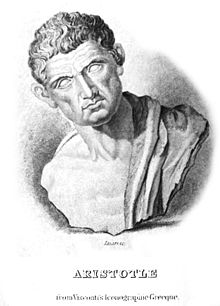This is an old revision of this page, as edited by Ancheta Wis (talk | contribs) at 12:33, 31 March 2005. The present address (URL) is a permanent link to this revision, which may differ significantly from the current revision.
Revision as of 12:33, 31 March 2005 by Ancheta Wis (talk | contribs)(diff) ← Previous revision | Latest revision (diff) | Newer revision → (diff)- Note: the current contents of this page are expected to change as consensus is reached.
This is an account of the development of the protosciences; that is, statements about the natural world which were once thought to be authoritative. Protosciences differ from pseudoscience or discredited work, as they are partial, or incomplete work.
From Antiquity up to the time of the Scientific Revolution, inquiry into the workings of the universe was known as natural philosophy, but this included fields of study which today have been divorced from science. The ancient people of Western civilization who we might think of as scientists may have thought of themselves as natural philosophers. In other cases, systematic learning about the natural world was a direct outgrowth of religion, often as a project of a particular religious community. An account of the development of (natural) philosophy from ancient times until recent times can be found in Bertrand Russell's History of Philosophy.

One important feature of non-scientific natural philosophy is a reluctance to engage in experiment. For example, Aristotle is one of the most prolific natural philosophers of antiquity. He made countless observations of nature, especially the habits and attributes of plants and animals in the world around him, which he devote considerable attention to categorizing. He also made many observations about the large-scale workings of the universe, which led to his development of a comprehensive theory of physics in his missives of the same name. (See Physics (Aristotle).)
But Aristotle did not make predictions in the way that modern scientific theories are expected to.